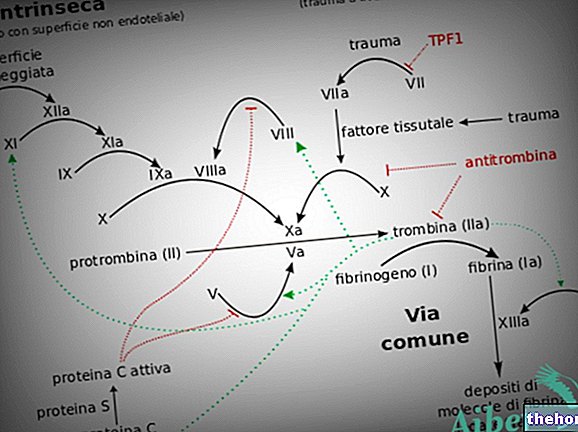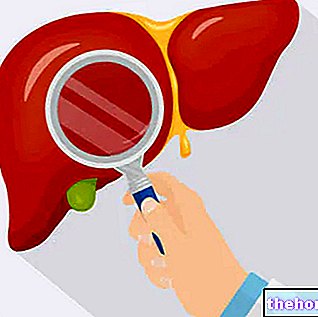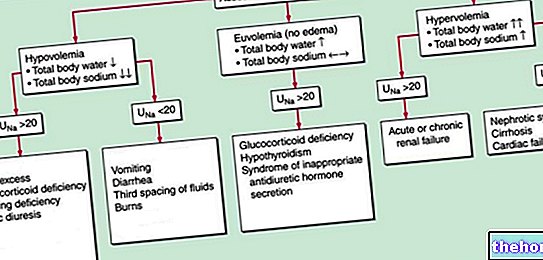See also: hyperparathyroidism
Generality
Hypercalcemia is a clinical condition characterized by an excess of calcium in the blood (concentrations above 10.5 mg / dL in adults).
In the article dedicated to calcemia, we saw how the blood levels of the mineral depend on the activity of vitamin D and two hormones, parathyroid hormone and calcitonin, which in turn modulate the deposit / release of calcium from the bones, as well as its renal reabsorption / excretion e
the degree of absorption at the enteric level. It follows that hypercalcemia can be caused by three different mechanisms, which can come into play in isolation or in combination:
- excessive release, localized or generalized, of calcium from the bones (for example due to increased secretion of parathyroid, as happens in hyperparathyroidism, the most common cause of hypercalcemia);
- increased intestinal absorption of calcium (for example from excessive vitamin D intake);
- decreased excretion of calcium in the kidney (as occurs in renal insufficiency).
Symptoms

Depiction of a parathyroid adenoma, a benign tumor of a parathyroid gland, almost always responsible for hyperparathyroidism with consequent hypercalcemia. From https://en.wikipedia.org
Due to the numerous and important functions performed by calcium in the body, hypercalcemia can be accompanied by a constellation of signs and symptoms of varying entities in relation to the degree of abnormality and the general health conditions of the patient. These include constipation, nausea, gastric hyperacidity (hypercalcemia increases gastrin secretion), abdominal pain, vomiting, psychological disorders (depression, confusion, apathy, lethargy up to coma), weakness, thirst, polyuria, dehydration and pain While in patients with modest hypercalcemia (11-12 mg / dL) the condition may be asymptomatic, in severe forms hypercalcemia is accompanied by quite severe symptoms, to the point of constituting a real medical emergency (severe arrhythmias, coma, kidney failure).
Causes and associated diseases
Infections, inflammatory processes, hyperparathyroidism (increased function of the parathyroid glands, usually due to benign tumors, with increased blood levels of parathyroid hormone), tumors with bone metastases (typical is the case of breast and lung cancer), tumors that release parathyroid hormone-like substances (paraneoplastic syndrome), Paget's disease, hyperthyroidism (increased thyroid function), bone fractures combined with prolonged immobilization, high-protein diet, excessive vitamin D intake, vitamin A intoxication, kidney transplant, tuberculosis , sarcoidosis, multiple myeloma, leukemia, trauma, stress and kidney failure.
Some iatrogenic causes include some diuretics (thiazides), thyroid hormone overdose (Eutirox), tamoxifen, and lithium therapy (mainly used in the treatment of bipolar disorder).
Treatment
See also: Medicines for the treatment of hypercalcemia
To establish an adequate treatment of hypercalcemia it is first of all necessary to determine the cause of origin (in this regard the diagram shown in the figure may be useful, clicking on it to enlarge it).

Other articles on "Hypercalcemia"
- Hypocalcemia
- Calcemia




























